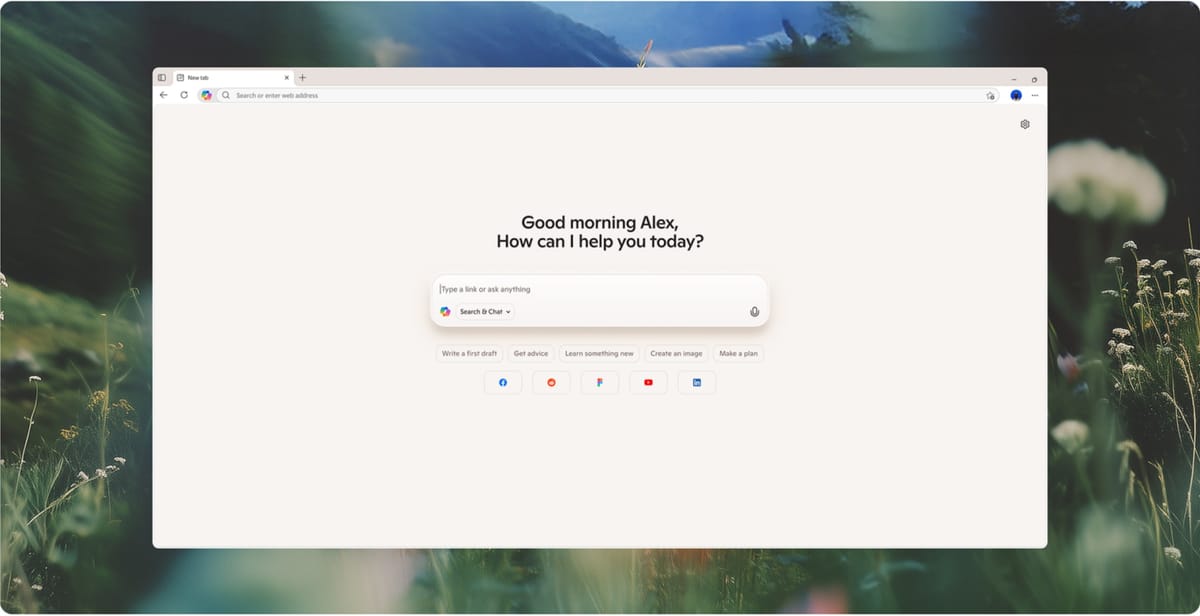A new experimental switch in Microsoft Edge hands the steering wheel to Copilot, promising faster research, fewer clicks, and—if you let it—access to every tab and even your browsing history.
Key Points
- Copilot Mode can read every open tab and soon your history to finish tasks for you.
- It’s free (for now), fully opt-in, and easy to disable in settings.
- Voice commands, tab comparisons, and automated bookings move Edge beyond “just a browser.”
When you flip on Copilot Mode in Edge, the familiar new tab page is replaced. Instead, you get a clean interface with a single input box that handles chat, search, and web navigation all at once. It's Microsoft's latest change to reinvent browsing for the AI era.
The standout feature is Copilot's ability to see across all your open tabs with permission. Researching vacation rentals across multiple sites? Just ask Copilot to identify which option is closest to the beach with a full kitchen. No more tab switching.
Voice navigation works today—you can speak directly to Copilot to locate information or compare products. But Microsoft's real ambition lies ahead. Soon, Copilot will access your browsing history and credentials to take "advanced actions" like booking that paddleboard rental, checking the weather, and suggesting tutorial videos.
This is what the industry calls "agentic" AI—assistants that don't just answer questions but actually do things for you.
The catch
Copilot Mode is free "for a limited time," though Microsoft won't say what pricing looks like. Given Perplexity's $200/month price tag, AI browsing could get expensive.
There's also the data question. Giving AI access to your browsing history and credentials is a big privacy leap, even with Microsoft's assurances about user control and clear visual cues when Copilot is active.
Security researchers are already flagging the trade-offs baked into so-called agentic browsers. Letting an autonomous agent roam through tabs and credentials ups the risk of data leaks, over-collection, and rogue actions if the model misfires or gets hijacked.
The browser wars are back
Still, the pull of a browser that actually does things—rather than just shows things—is strong, and rivals are sprinting the same direction. Google began rolling out Gemini inside Chrome earlier this month, adding page-aware chat and voice controls of its own. Perplexity launched Comet, and OpenAI is rumored to be next. Even Microsoft hints that Copilot Mode may become a paid tier once the “free for now” label evaporates.
Microsoft’s pitch, though, leans on control: Copilot only sees what you explicitly allow, and bright visual cues signal when it’s peeking. The company says all data stays covered by its standard privacy policy, and you can revoke access any time. Skeptics will want to test that promise—and watch for dark-pattern nudges to keep the mode switched on.
Edge has quietly enjoyed a renaissance since Bing Chat launched two years ago. Copilot Mode cranks that dial to 11, moving from a helpful sidebar to a full-blown pilot seat. If Microsoft nails the balance between autonomy and user trust, the humble browser tab may start feeling as dusty as dial-up.
Either way, the next time your screen fills with a sea of tabs, you might ask Edge to clean it up for you—and maybe book the dinner reservation you forgot along the way.

